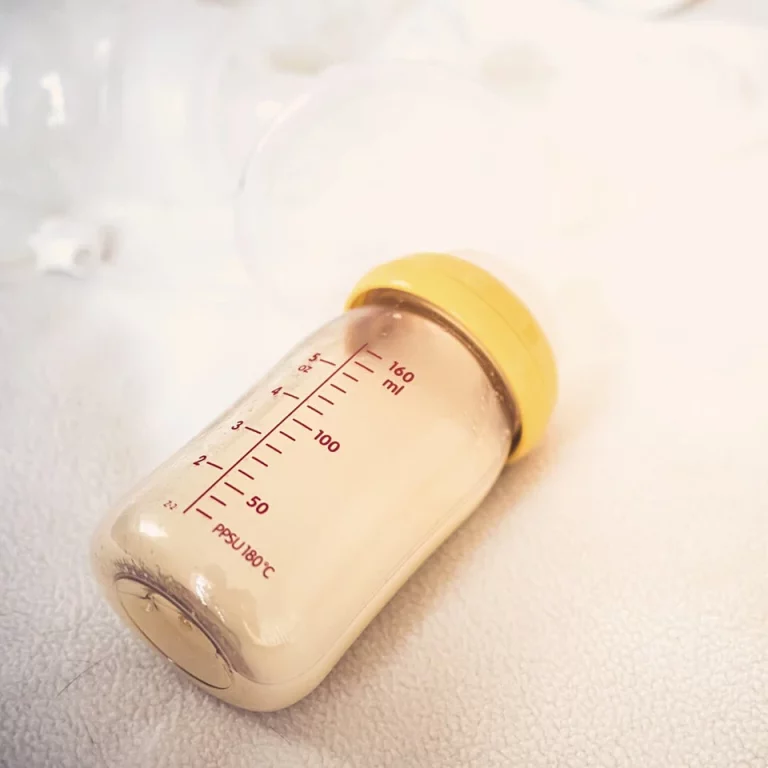Postpartum Diet Plan: Tips For Healthy Weight Loss
The postpartum period is a critical phase in a new mom’s life, with physical and emotional recovery taking place as they adapt to their new role as a caregiver. During this time, it is essential for new mothers to follow a healthy diet to support their healing process, provide adequate energy, and address their unique nutritional needs.
Postpartum Diet Plan: Considerations For Breastfeeding Moms
Breastfeeding is a crucial phase for both the baby and the mother. It is not easy to do between some of the physical pain it causes like cracked nipples and rib pain, along with lack of sleep in the early days of breastfeeding. Let’s take a look at some of the special diet considerations for postpartum moms that are also breastfeeding.
Increased Calories
Breastfeeding parents require an additional 450-500 calories per day. If you are trying to lose weight in the postpartum period it is important to not consume much more than this extra amount.
Hydration
You may often feel thirsty when breastfeeding. It is important to stay hydrated and not mistake thirst cues for hunger cues. Hydration can be very helpful in losing pregnancy weight especially during breastfeeding when your body is burning a lot of calories naturally.
Boosting Your Milk Production Through Diet
There is no good evidence to support the use of specific foods to boost milk production. Milk production can be boosted through increasing the frequency of feeding as well as other methods like power pumping.
Avoid eating high calorie foods like lactation cookies that claim to increase milk supply without good evidence. Increasing milk supply is largely dependent on frequency of feeding or pumping.
Vitamin D Supplementation
Babies who are majority breast fed will need to have Vitamin D supplementation. Breastfeeding moms can also supplement their own diet with Vitamin D so that they don’t need to also give their baby Vitamin D drops. Some parents find it easier to just provide the supplement to their newborn. Other moms want to supplement their own diet with Vitamin D.
Postpartum Diet Plan: Gestational Diabetes (GDM)
The postpartum period is very important for patients who had gestational diabetes during their pregnancy.
Diet Considerations
Special attention should be paid to manage blood sugar levels, support recovery, and reduce the risk of developing type 2 diabetes later in life. Here are some key considerations:
- Balanced Carbohydrates: It’s important to include carbs in the diet, but the focus should be on complex carbohydrates with a low glycemic index that are digested more slowly and cause a gradual rise in blood sugar levels. Examples include whole grains, legumes, and vegetables.
- Fiber-Rich Foods: High-fiber foods can help control blood sugar levels and support digestive health. Aim for a variety of fruits, vegetables, whole grains, and legumes.
- Lean Protein: Incorporate lean protein sources to help with satiety and muscle repair. Options include poultry, fish, tofu, legumes, and low-fat dairy products.
- Healthy Fats: Include sources of monounsaturated and polyunsaturated fats, which can help improve blood cholesterol levels and support overall heart health. Avocado, nuts, seeds, and olive oil are good choices.
- Hydration: Staying well-hydrated is crucial, especially if breastfeeding, as it supports milk production and helps with overall health. Water is the best choice for staying hydrated.
- Limit Added Sugars and Refined Grains: Foods high in added sugars and refined grains can cause spikes in blood sugar levels. Limiting these foods can help manage blood sugar levels and support weight management.
- Regular Meals and Snacks: Eating at regular intervals can help maintain stable blood sugar levels throughout the day. It’s especially important not to skip meals.
- Moderation in Portion Sizes: Paying attention to portion sizes can help with weight management, which is important for reducing the risk of type 2 diabetes.
- Breastfeeding: If possible, breastfeeding can help with postpartum weight loss and may reduce the child’s risk of developing diabetes and obesity later in life.
- Monitoring Blood Sugar Levels: Some women may need to continue monitoring their blood sugar levels postpartum, especially if their blood glucose levels were difficult to manage during pregnancy or if they required insulin.
- Consultation with a Healthcare Provider: It is likely that your doctor will want to retest you for diabetes about 6 weeks after you have delivered your baby.
Follow Up Testing
It is important for postpartum women who had gestational diabetes during their pregnancy to also have testing after they have had their new baby. This follow up testing is typically done by your Ob Gyn or your primary care doctor.
- Oral Glucose Tolerance Test (OGTT): This test is usually recommended 6 to 12 weeks after delivery to check for diabetes or prediabetes. It involves fasting overnight and then drinking a glucose solution, with blood sugar levels tested initially and then again after 2 hours.
- Fasting Blood Sugar Test: This test measures blood sugar after an overnight fast. It’s a simpler test than the OGTT but can be less revealing about how your body manages glucose over time.
- HbA1c Test (A1C or Glycated Hemoglobin Test): This test provides an average blood sugar level over the past 2 to 3 months. It doesn’t require fasting and can be done at any time of the day. An A1C level of 6.5% or higher on two separate tests indicates diabetes.
Even if your postpartum diet plan is made up of whole foods and healthy snacks, the best way to know if you are at risk for having Type 2 Diabetes after having GDM, is to get tested with your doctor.
Postpartum Diet Plan: General Recommendations
A well-balanced postpartum diet plan can greatly influence a mother’s overall well-being and ability to care for her baby. Consuming an appropriate amount of nutrients helps improve mood, energy levels, and overall health throughout this period. Key components of a postpartum diet plan should include a variety of fruits, vegetables, whole grains, lean proteins, and healthy fats that cater specifically to the nutritional requirements of new moms.
Understanding Nutritional Needs Post-Delivery
After giving birth, it’s essential for new mothers to focus on maintaining a nutrient-dense diet to aid in their postpartum recovery. Consuming the right balance of essential nutrients not only helps the body heal but also supports energy levels and milk supply. During this time, new mothers require extra calories to meet their changing needs.
A well-planned postpartum diet includes a variety of lean proteins, whole grains, fruits, and vegetables. It is crucial to ensure adequate intake of vitamins and minerals, such as iron, calcium, and vitamin D, to support the body during the recovery process. Incorporating healthy fats, like omega-3 fatty acids, can help improve energy levels and support cognitive health.
Prenatal Vitamins
Postpartum women are often advised to continue taking prenatal vitamins, especially if they are breastfeeding. Prenatal vitamins can help ensure that both the mother and the baby receive essential nutrients during this critical period. Here are a few reasons why continuing prenatal vitamins postpartum can be beneficial:
- Nutritional Support for Breastfeeding: Breastfeeding mothers have higher nutritional needs. Prenatal vitamins can help fill any nutritional gaps in a mother’s diet, ensuring that both the mother and the baby receive essential vitamins and minerals. This is particularly important for nutrients like vitamin D, B vitamins, and DHA (docosahexaenoic acid), which are crucial for the baby’s development.
- Recovery and Healing: The postpartum period is a time of recovery for the mother. Continuing to take prenatal vitamins can support the body’s healing process, providing nutrients that are essential for tissue repair and overall health.
- Iron Needs: Postpartum women, particularly those who experienced significant blood loss during delivery, may benefit from the iron in prenatal vitamins to help prevent or treat postpartum anemia. Be cautious with iron supplementation as it may constipate some people. However, food sources of iron have less of this effect.
- Calcium and Vitamin D: These nutrients are important for bone health. Since the baby’s needs for calcium are high during breastfeeding, continuing with prenatal vitamins can help ensure that the mother’s bone density is maintained.
However, it’s important for postpartum women to consult with their healthcare provider before continuing or starting any vitamin or supplement regimen. The healthcare provider can offer personalized advice based on the individual’s health status, dietary intake, and specific needs during the postpartum period. If possible, your doctor may also be able to help you find a registered dietitian that can help you plan your postpartum meals.
Foods to Support Healing And Energy Levels
Here is a breakdown of some foods that can help to support your body during the postpartum period.
Lean Proteins: Protein-rich foods play a vital role in tissue repair and muscle growth.
Sources of lean protein include:
- Chicken
- Turkey
- Fish ( low in mercury)
- Beans
- Lentils
- Low-fat dairy products
Whole Grains: Whole grains provide essential nutrients, such as fiber, B vitamins, and minerals, to help maintain energy levels and support digestive health. Examples include:
- Brown rice
- Quinoa
- Oats
- Whole-wheat bread
- Whole grain pasta
Fruits and Vegetables: Consuming a variety of fruits and vegetables ensures an adequate intake of essential vitamins and minerals, which promote healing and overall wellbeing. Examples of nutrient-dense options include:
- Leafy greens (spinach, kale)
- Berries (strawberries, blueberries)
- Cruciferous vegetables (broccoli, cauliflower)
- Vitamin C-rich fruits (oranges, kiwi)
Healthy Fats: Incorporating healthy fats into the diet can support brain function and provide sustained energy. Sources of good fats include:
- Avocado
- Nuts (almonds, walnuts)
- Seeds (chia, flax)
- Olive oil
- Fatty fish (salmon, sardines)
With a focus on good nutrition and a balanced diet, new mothers can effectively support their postpartum recovery while maintaining sufficient energy levels and milk supply.
Constipation And Fiber Intake
Immediately postpartum, pooping can be difficult. Adequate fiber and water intake can make it easier and can help to avoid constipation after you deliver.
Good sources of fiber include: fruits, vegetables, whole grains, chia seeds.
Macronutrients
The macronutrients are divided into three large categories: proteins, carbohydrates, and fats. A well-balanced postpartum diet should consist of a proper balance of macronutrients, including proteins, carbohydrates, and fats.
Consuming adequate protein during this phase is crucial, as it supports tissue repair and growth. Opt for lean protein sources such as poultry, fish, legumes, and low-fat dairy products.
Carbohydrates, especially complex carbs found in whole grains, provide energy and support lactation. Healthy fats, particularly omega-3 fatty acids found in foods like salmon, walnuts, and flaxseeds, are essential for optimal brain development and breast milk quality.
Postpartum Diet Plan: Weight Loss
After giving birth, many new mothers wish to return to their pre-pregnancy weight.
Set Realistic Goals
However, it is essential to set realistic goals for postpartum weight loss. Keep in mind that the body needs time to recover from pregnancy, and there isn’t a one-size-fits-all solution. The rate at which a woman loses weight can vary depending on factors such as age, genetics, and overall health.
Healthy Lifestyle
It’s recommended that mothers avoid restrictive diets and focus on a healthy lifestyle.
Diet
This includes eating a variety of nutrient-dense foods and staying well-hydrated. A gradual weight loss of around 1 to 2 pounds per week is considered safe and sustainable. It can take several months, or even up to a year, to lose the weight gained during pregnancy, so patience and self-compassion are essential.
Sleep
Adequate sleep can be helpful in maintaining a healthy weight in the postpartum period.
Exercise
Typically, postpartum moms can start exercising 6 weeks after delivery. However, it’s always important to get medical clearance from your Ob Gyn before engaging in strenuous physical activity.
Address Any Mental Health Issues
Mental health can significantly affect postpartum weight loss.
- Stress and Cortisol Levels: High levels of stress can increase the body’s production of cortisol, a hormone that can promote weight gain, especially around the midsection. Postpartum women often experience significant stress, which can make losing weight more challenging.
- Postpartum Depression: This is a common condition that can affect new mothers, characterized by persistent sadness, anxiety, and fatigue. These symptoms can make it difficult to find the motivation to exercise, prepare healthy meals, or engage in other weight-loss activities. Additionally, some people may eat more when they are depressed, using food as a form of comfort. During your postpartum visits, you will be screened with a postpartum depression questionairre.
- Sleep Deprivation: New parents often experience significant sleep disruption. Lack of sleep can affect the body’s metabolism and appetite-regulating hormones, leading to increased hunger and cravings for high-calorie foods. This can make it harder to lose the baby weight.
- Energy Levels and Motivation: Mental health issues, including anxiety and depression, can sap energy levels and reduce motivation. This can make it difficult to engage in physical activity or to be consistent with a healthy eating plan..
- Self-care: Mental health struggles can make it harder for new mothers to prioritize their own needs, including taking time for exercise, preparing nutritious meals, and getting enough rest.
- Expectations: It is important to set reasonable expectations about weight loss following having a baby. Social media can put unnecessary pressure on new moms to look or feel a certain way following delivery.
Postpartum Diet Plan: Summary
The postpartum period is a critical time for new mothers, requiring attention to diet and nutrition to support physical and emotional recovery, especially for those breastfeeding. Breastfeeding mothers need an additional 450-500 calories per day for energy and to support milk production, but it’s important to balance calorie intake for those aiming to lose postpartum weight. Hydration is crucial, as it aids in weight loss and prevents mistaking thirst for hunger. For mothers with gestational diabetes, managing blood sugar levels through a diet rich in complex carbohydrates, fiber, lean proteins, and healthy fats is essential to reduce the risk of developing type 2 diabetes later. Overall, a balanced postpartum diet, possibly supplemented with prenatal vitamins, supports recovery, mood, energy levels, and the well-being of both mother and baby, with special considerations for weight management and the prevention of postpartum depression.








